Singapore vending machines now dispense salmon, crab and even cacti
- Published
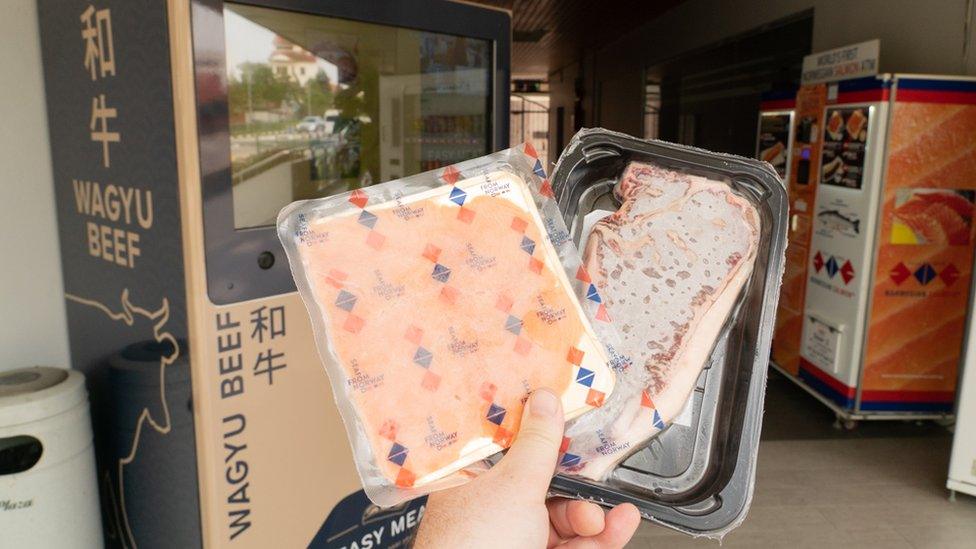
Vacuum-packed salmon and Wagyu beef - straight out of a vending machine
The slightly tired-looking shopping centre in the Singapore neighbourhood of Kovan didn't seem like an obvious place to shop for salmon or Wagyu beef.
And yet, here they both were, available in vending machines next to a hairdresser and a dialysis clinic.
I wondered idly if I could whip up a vending machine surf and turf, and whether it would be any good.
There was only one way to find out.
I opted for sliced sashimi-style salmon and an Australian Wagyu striploin. The nearest salad vending machine was in the next neighbourhood. So I put off vegetables for another day.
Pizza, cacti and anything else
Vending machines are having a moment in Singapore. It's not just Wagyu beef and salmon.
Machines offer bread, curry puffs, freshly cooked pizza, freshly squeezed orange juice and even cooked chilli crab, a famously messy local favourite that costs $60 (£33).

Vending machines selling bread have been commonplace for a while now - this machine was introduced in 2004
Drinks and snacks still dominate, but the variety is increasing.
One company has set up a chain of cafes that serve hot local dishes from machines.
There's also a small chain of unstaffed convenience stores, selling everything from plasters to baked beans out of machines.
One local retailer has a book vending machine, while another company sells cacti.
Market research firm Euromonitor says vending machine revenues in Singapore grew about 15% from $91m in 2014 to $104.5m in 2019.
Last year was tipped to be a bad one due to the pandemic, but growth is expected to resume this year.
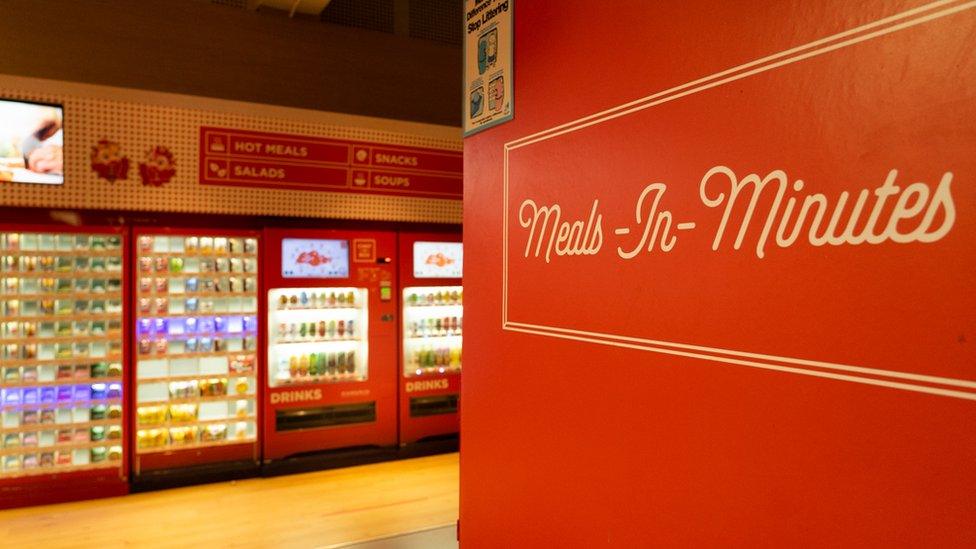
Chef-in-Box cafe in Singapore heats and serves ready meals from a machine
Why Singapore?
The reasons vending entrepreneurs are trying out new products are as varied as the businesses themselves.
Manish Kumar, the managing director of Norwegian Salmon, says machines offer him his own retail space. That means his frozen products aren't placed next to fresh salmon, which is more popular here.
Mervin Tham, one of the three founders of EasyMeat, whose machines sell the Wagyu beef, thinks the variety is expanding because the barriers to entry are fairly low.
"It's a low effort way of testing a product, especially if you're starting a business of your own. And generally there's some interest towards the automated retail culture that you see overseas, like in Japan," he says.
Elaborate prank or popular meal?
The Norwegian Salmon ATM dispensed my sliced sashimi, which was frozen in a vacuum-sealed pack with a packet of soy sauce and a small wooden fork.
It's such an oddly specific product that when the machines started to appear around Singapore I wondered if it might be an elaborate prank or a weird art project.
"A lot of people have told me that," says Mr Kumar.
Still, he says locals are coming around to the idea. Currently, there are 110 machines, and he thinks there are enough customers in Singapore to support 900.
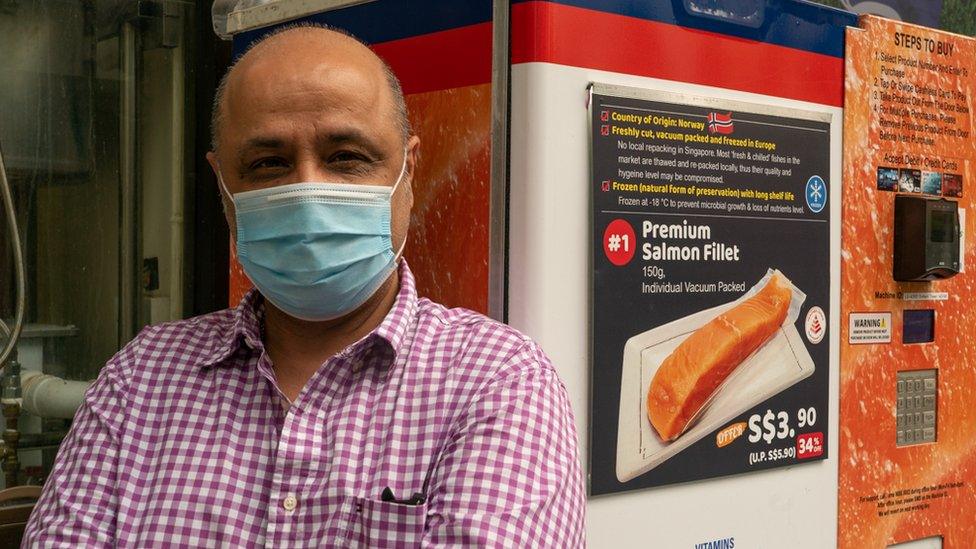
Manish Kumar with Norwegian Salmon ATM
And the more machines, the better. Most operate on slim margins, which means decent profits depend on having many machines and enough people to buy from them.
Mr Kumar says a compact, densely populated city like Singapore is ideal.
Pandemic ready?
In Japan, which has more machines per capita than any other country, the pandemic has hit the industry hard, mostly because of reduced foot traffic.
Euromonitor's report also predicted a significant drop for Singapore's machines.
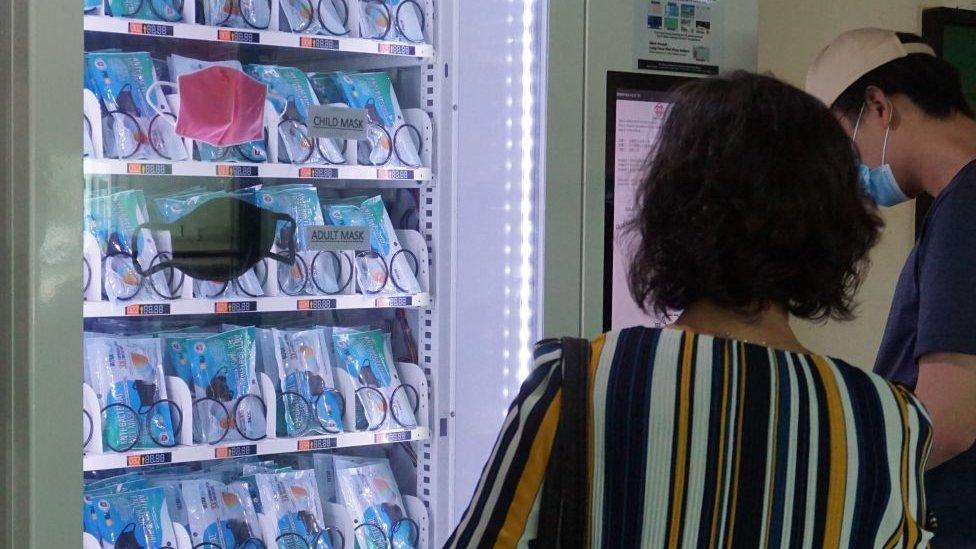
Singapore residents were given access to free face masks from vending machines as part of government efforts to stop the spread of Covid-19
But vending machines have played a key role in Singapore's pandemic response, with the charitable arm of the country's sovereign wealth fund Temasek installing 1,200 of them around the island to dispense free masks.
Mr Kumar says his own machines did well, with sales surging elevenfold during Singapore's circuit breaker period, which restricted movement between April and June last year.
"It's 24/7, contactless, safe to buy, safe to eat. No need to go to any superstore. Social distancing is there. In six seconds, you get your product. You go," he says.
Cost and convenience
It took me 30 minutes on a bus to get to the Wagyu vending machine, so the sign on the side of the machine saying "Wagyu near you" wasn't strictly true.
But EasyMeat is a new company with only a few machines, and the firm's founders have plans to expand.
In a city where almost everything can be delivered, they are keenly aware that convenience is always a key selling point.
Co-founder Mervin Tham says they started the business partly because they had all separately wanted sliced Wagyu beef for shabu shabu hot pot dishes after midnight, and had been unable to get it.
"Sometimes when the weather is cold, in Asian cultures you do like to have steamboats or hot pots. And sometimes you find yourself not having Wagyu when you want it," Mr Tham says.
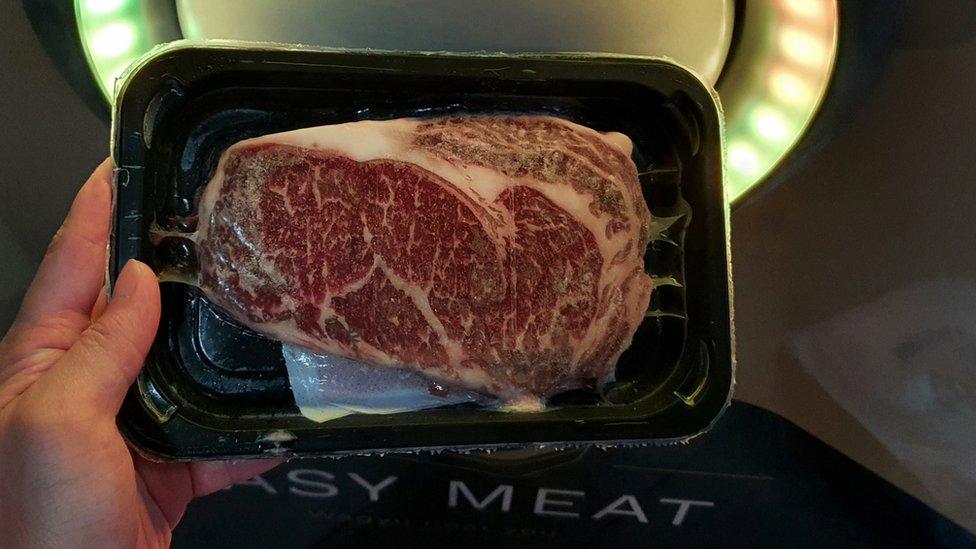
From the machine...
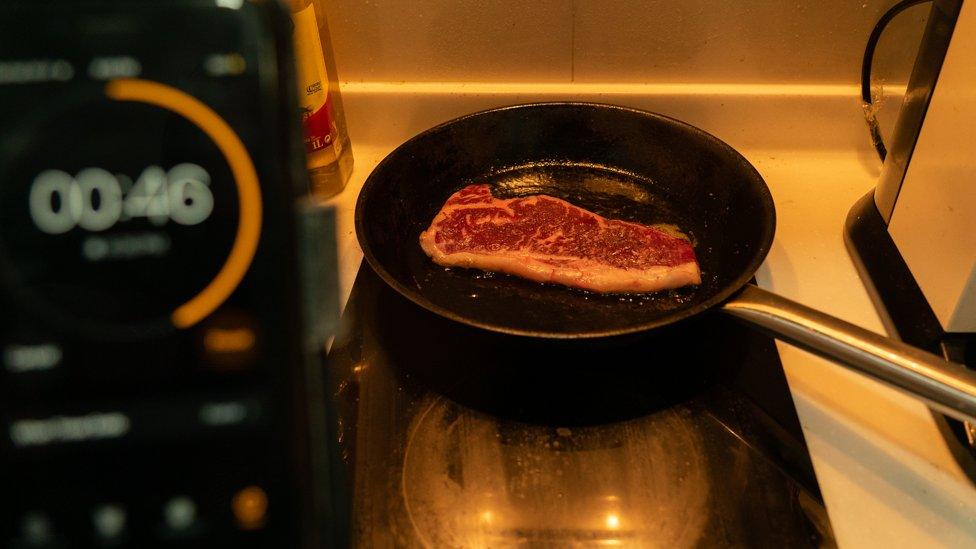
...and into the frying pan
He says there is a gap between bricks and mortar and e-commerce. If the supermarket is closed, the obvious alternative is to order it online.
But it often takes several days to arrive, the customer might have to wait at home for several hours to receive a frozen delivery and there might be a minimum order. A vending machine solves these problems.
Wagyu beef seems like an unusual impulse buy, but Mr Tham says the machines' data shows that many customers buy after midnight.
"I have no idea who are the night owls that would camp out that late for supper," he says.
Surf and turf
The salmon and the steak both came out of the vending machine frozen solid in vacuum-sealed containers, so I let them thaw out on the ride home, and then for another few hours once I reached my kitchen.
The salmon didn't require any preparation beyond taking it out of the packaging.
But I had to cook the $24 Wagyu on the stove-top, a slightly daunting prospect for a culinary bungler like me. So I opted for the simplest possible approach: lightly seasoned and cooked in a pan with some oil.
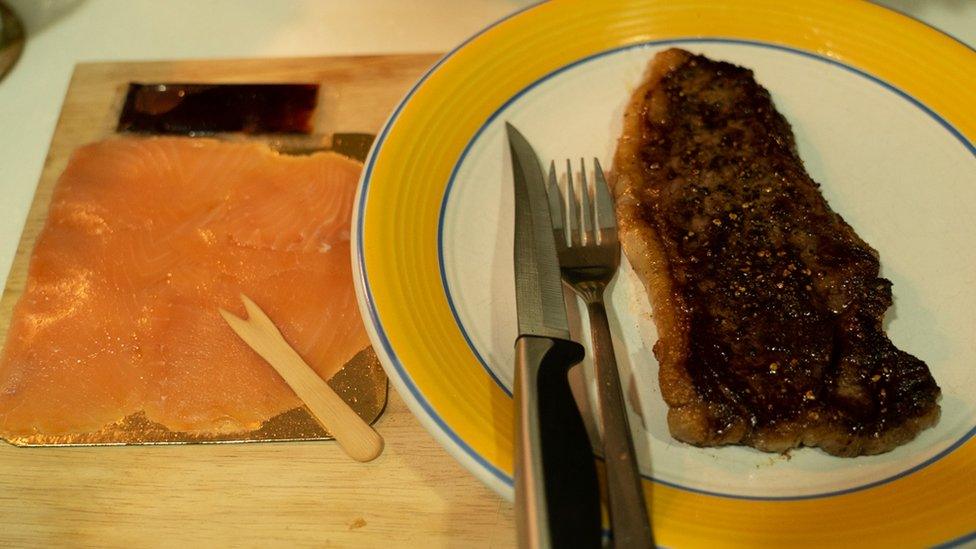
The finished vending machine surf and turf
The surf and turf scored 7.5 out of 10, which is better than I expected. The salmon was flavourful, although I would have liked some wasabi with it. The steak was tender, fatty and very tasty.
I cooked it a touch too long and my presentation was sloppy at best. But I can hardly blame a machine for that.
Related topics
- Published28 May 2020
